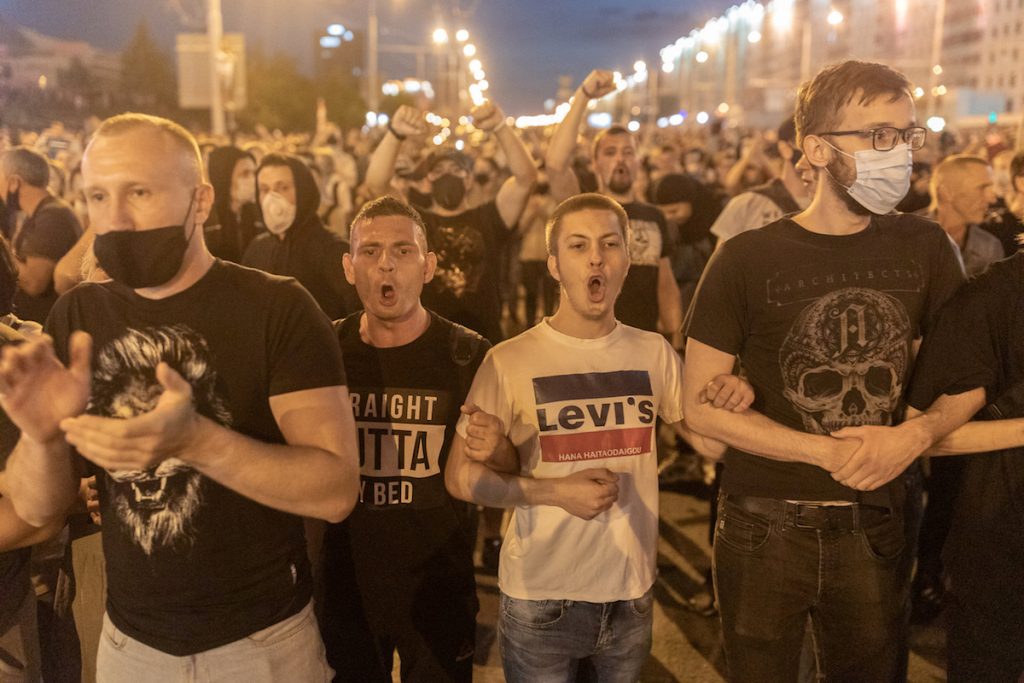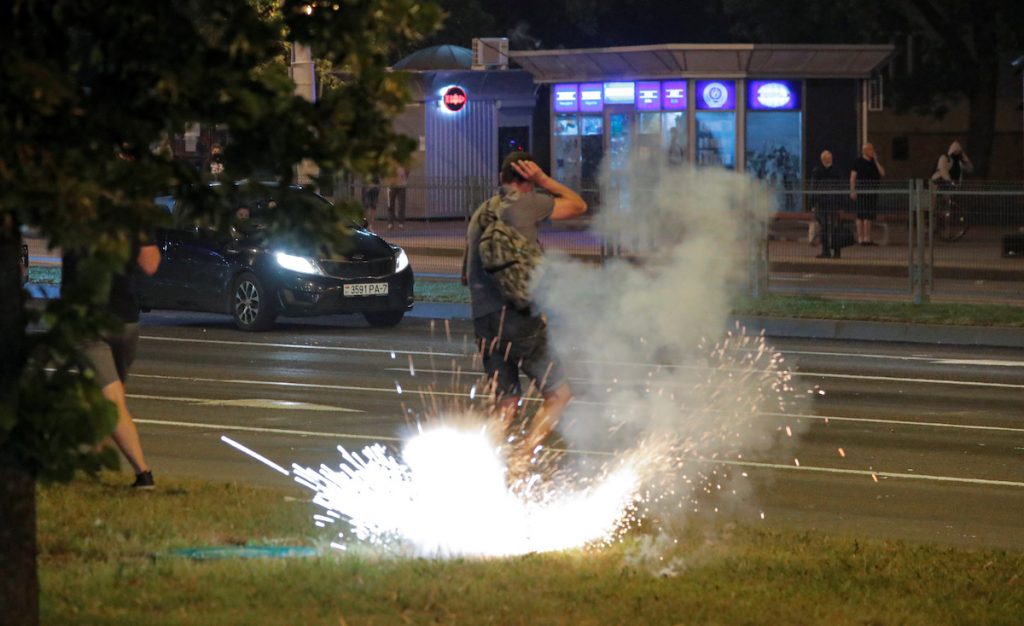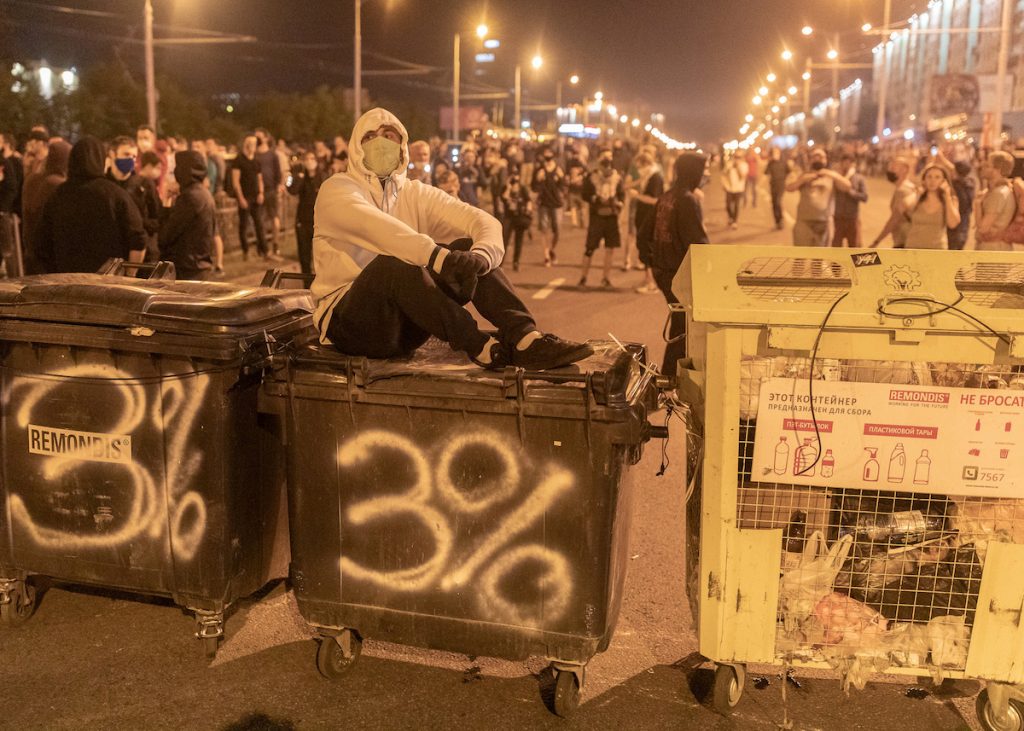“We have no leader and we don’t need one” - third day of riots in Belarus
The growing brutality of police, protests without a leader, and a chance at a revolution. What the third day of protests in the Belarusian capital has shown us.
Third day of mass protests: main points
Cruel and unusual methods used by security forces towards demonstrators
The police are actively using riot control weapons and attacking journalists, and people are beaten right on the street.
A video was published showing dozens of people tied together lying face down on the asphalt in a police station in Minsk.
The total number of detainees throughout the country has reached 5,000.
• Op-ed: Russia has tired of Putin. But what can it do?
Aggression towards the general population
The riot police ran around courtyards of apartment buildings, broke down doors and beat those who were caught.
Car windows were broken and drivers honking in support of protesters were beaten.
They shot at the windows of the apartments where residents were filming what was happening.
The protesters have no leader
After the presidential candidate Sviatlana Tsikhanouskaya left the country and publicly called on the protesters to stop the rallies, none of the politicians wanted to join the fight against the regime.
People are assembling without any guidance. Some activists argue that the protesters do not need a leader in this situation.
On the contrary, the fact that they are decentralized prevents the authorities from being able to repress them.

The protest is regrouping: demonstrators have moved from the city center to the outskirts. Most of the clashes took place there.
The protesters are coordinating through anonymous telegram channels.

Op-Ed: a chance for the first real “European revolution”
The well-known Russian economist and political scientist Vladislav Inozemtsev believes that the demonstrations in Belarus are radically different from other similar events in the post-Soviet space.
“The “Belarusian case” may turn out to be much more interesting and significant than the Ukrainian one (Euromaidan).
While in Ukraine, the revolutionary energy of the masses is always used by one or another group of oligarchs, in Belarus there is a chance for a true popular revolution, which will nominate real, not appointed leaders.
Belarus is not Russia; today, a struggle is underway not just to correct the political course of the country, but to ensure it survives, as its life is endangered by the usurper who seized power, along with his henchmen.”

Most likely what will happen is that a popular movement will form with new leaders similar to what happened in 1980s Poland, which is close to Belarus, with its Solidarity Movement.
Minsk in 2020 is reminiscent not of the Ukrainian Maidans of 2004 and 2014, nor of the Armenian protest of 2018, but of the large-scale European resistance of 1989, which demolished not individual rulers, but the inhumane communist regime.“


















